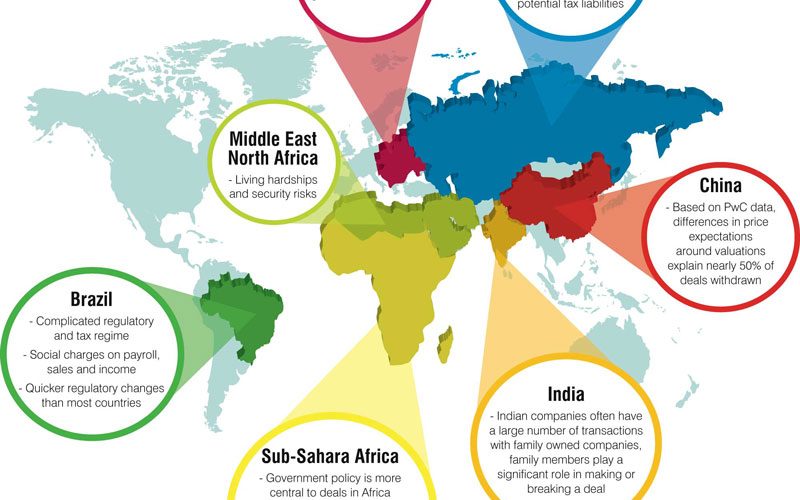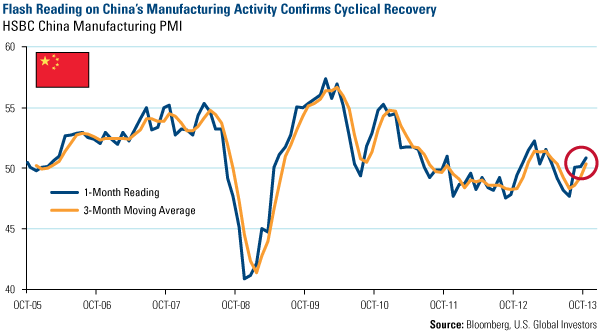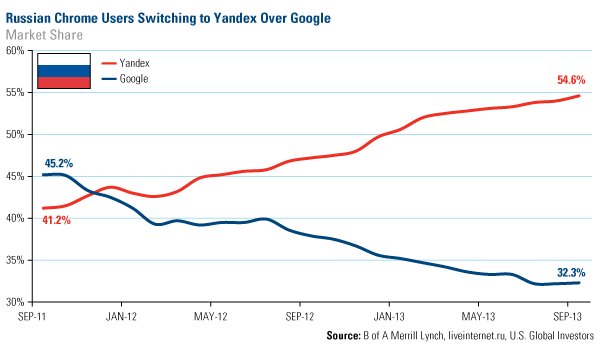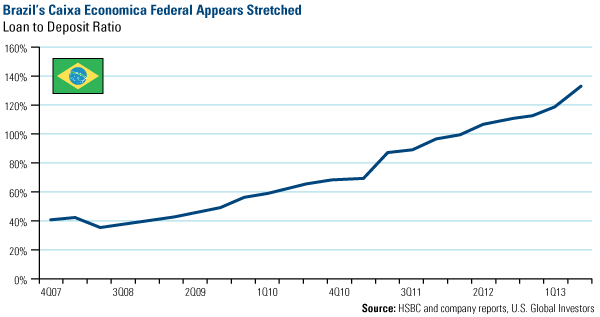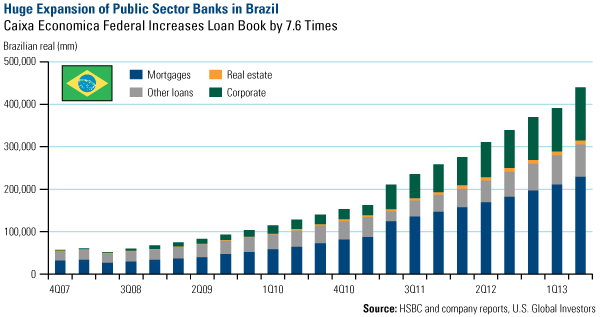Emerging Markets Radar (October 28, 2013)
Strengths
- HSBC October China flash PMI was 50.9 versus the estimate of 50.4, and improved from 50.2 in September, indicating that China industrial activities continue to expand. It is also worth noticing that sub-indices of HSBC preliminary PMI improved broadly, a sign of economic recovery.
- From October 17 to October 23, net fund flows to emerging market equity funds was $2.5 billion. It is the sixth weekly inflow in the last seven weeks, according to JP Morgan.
- The Philippines kept rates on hold as expected at 3.5 percent and 5.5 percent for the reverse repo and repo rates, respectively. the central bank BSP (Bangko Sentral ng Pilipinas) reaffirmed robust domestic demand outlook.
- Taiwan September export orders rose by 2.0 percent year-over-year, versus 0.5 percent in August, though export orders fell 0.8 percent year-to-date by September end.
- Hong Kong September exports and imports both beat expectations, despite a difficult base. The exports grew 1.5 percent, while imports grew 0.4 percent.
- Colombia’s agency for development - Fedesarrollo reported industrial confidence in the Andean nation rose 2.2 points in September, while retail confidence rose to 16.7 from 12.0 in August. Similarly, the national statistics agency, DANE, posted official trade balance numbers for the month of August showing a better than anticipated trade surplus. Imports fell 5 percent in August to $5.0 billion while exports rose 8.9 percent from a year ago.
- This month’s Bank of America fund manager sentiment survey shows Russia remains the market darling with 67 percent of respondents saying they currently overweight the country. Despite the lackluster performance of recent years, investors continue to highlight Russia’s cheap valuations as a reason to overweight the export-dependent economy.
Weaknesses
- Seven day Shibor jumped to 5.9 percent versus the normal average level of around 4 percent in China due to non-action by the People’s Bank of China (PBOC), the central bank. The stock markets in China reacted negatively to the tightness of liquidity; however, the PBOC is willing to resume open market operations next week if rates in the money market rise too much, Market News International reports.
- Malaysia September inflation jumped to 2.6 percent versus the market expectation of 2.5 percent after a fuel price hike. The data showed no evidence of inflation pressure since core inflation actually eased to 1.2 percent from 1.3 percent in August, and therefore, no rate hike was expected after the central bank said its focus was mostly on growth.
- Thailand September exports were down 7.1 percent year-over-year, largely due to the fall of industrial exports. Imports were weak as well, falling 5.2 percent last month.
- According to data published by the Fundacao Gertulio Vargas (FGV), Brazil’s consumer confidence decelerated from 114.2 in September to 111.1 in October. Bloomberg data suggests the number was the worst print in the year excluding July (108.33), when street protests negatively affected the reading.
- Deutsche Bank reviewed the assumptions on its Gazprom financial model from October last year, showing key assumptions were too optimistic and did not materialize. The previous model assumed a liberalization of 15 percent of the domestic gas market in 2014, now expected to be only 4.5 percent. In addition, export price discounts of 12 percent came in at 14 percent, while Ukrainian demand volumes came in 37.5 percent lower than modeled. These headwinds were exacerbated by a lower than forecast Brent crude reference price. The silver lining appeared to be a better than expected recovery in European volumes, however, the difference between forecast and actual volumes is easily explained by a seasonal factor rather than a structural improvement in demand. As a result, the German bank lowered its price target on the stock from RUB200 to RUB132.
Opportunities
- As shown in the chart above, HSBC China Manufacturing PMI has turned to an uptrend showing expanding industrial activities. October China flash PMI was 50.9, higher than the market expectation of 50.4 and 50.2 in September. Sub-indices of the index also broadly expanded in October. China’s economy benefited from a targeted stimulus in high speed railway and other infrastructure investments, and a reform policy that revitalized the economy and competition.
- A spokesman for Mexico’s PAN opposition party was quoted as saying Mexico has a “better than ever” chance of passing a bill this year to break a seven-decade state monopoly on oil drilling. Talks on the subject are advancing in Congress after the ruling PRI party unlocked negotiations in the political and fiscal reforms currently making their way through the legislature. President Enrique Pena Nieto is betting on an energy overhaul to attract major diversified energy companies to Mexico, saying new investments will lift economic growth on Latin America’s second largest economy.
- Russian users continue switching from Google (a default search engine in Chrome) in favor of the Russian top player, with Yandex’s share in Chrome browser trending upwards. After Yandex’s share topped 50 percent for the first time in January 2013, the company has further cemented its leading position, gaining another 4.6 percentage points year to date.
Threats
- The Credit-to-GDP ratio in Brazil has gone from 25 percent to 57 percent in the 10 years, marking one of the fastest increases in financial penetration over the last decade, according to HSBC. The worrying increase in indebtedness of Brazilian consumers and corporations has gone largely unnoticed because interest rates have declined over that period, paring the burden of debt. However, the fact that loans have grown faster than deposits for several years has left banks largely under-funded. Case in point, Caixa Economica Federal increased its loan portfolio by 7.6 times over the last 5 years, while its loan-to-deposit ratio increased from 40 percent to 133 percent over the same period, making the lender look very stretched from both a capital and funding perspective.
- Beijing Municipal Commission of Housing and Urban-Rural Development announced seven measures to stabilize the home prices. Other municipalities in China may follow after strong rising home prices. Many believe those measures are only creating temporary market sentiments, but will not change the price dynamics due to shrinking supply next year.
- Czech central bank Governor Miroslav Singer says monetary policy will continue to be supportive of economic recovery. However, Singer explained that if the country found itself in a situation where zero interest rates are not enough to bolster economic growth, the committee would use the exchange rate to achieve its objectives. Singer’s proposal signals the need for a weaker exchange rate to meet the central bank’s growth forecast. A currency devaluation has been proven to bring only unsustainable short term economic growth, at the cost of potentially higher inflation and foreign investment outflows.




